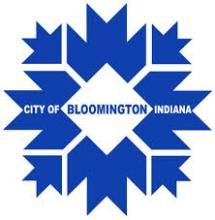Palo Alto, CA, and Pikeville, KY, Release RFIs
Two new Requests for Information (RFI) were recently released in Palo Alto, California, and Pikeville, Kentucky.
Pikeville, Kentucky
Pikeville is open to both public ownership and Gigabit service via privately owned infrastructure. This community of approximately 7,000 residents wants Fiber-to-the-Premises (FTTP) for businesses, community anchor institutions, municipal facilities, and residents. The regional Appalachian Mountain community, with many jobs lost due to the shrinking coal industry, is turning to connectivity as a way to spur economic development.
Pikeville’s RFI describes how service from existing providers is expensive and "sporadic." This RFI calls for a partner that will help the community develop an open access, affordable, financially sustainable network. In drafting the RFI, Pikeville’s officials made sure to note that low-income residents will not be left behind; bringing this asset to disadvantaged residents is a priority.
The city is the county seat of Pike County and home to a number of colleges as well as several large healthcare facilities. City, county, and federal government facilities are also located in Pikeville and need better connectivity. In 2015, the city obtained a $5 million grant for technology-based training and degree programs for residents in the area. A $1 million grant supplied funding for a Broadband Technology Center in Pikeville. Now the city needs fast, affordable, reliable Internet network infrastructure to complement the Center and to move the local workforce toward more information based industries.
Important Dates:
- Letter of Intent Due: May 23, 2016
- Questions Due: May 25, 2016
- Final RFI Submissions Due: June 3, 2016
The city’s website has more information and details.
Palo Alto, California
Palo Alto is a Silicon Valley city of 67,000 residents; daytime workers coming into the community swell the population to approximately 125,000. Incumbents include Comcast and AT&T who have intimated they might be interested in bringing fiber to the city, but have yet to act. Community leaders are exploring all options with this RFI.



